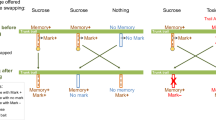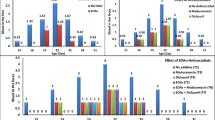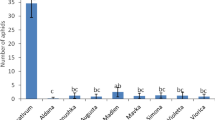Abstract
I HAVE just had an opportunity of seeing Dr. Romanes' interesting work, “Darwin, and after Darwin,” and find therein (p. 292) the production of honey-dew by Aphides adduced as a difficulty in the way of the Darwinian theory. I have not paid any particular attention to Aphides, but have lately been much interested in the allied Coccidæ, which, since they produce a similar fluid attracting ants, may be considered to offer a parallel instance. Both Coccidæ and Aphides suffer from many predaceous and parasitic enemies, and there seems to be no doubt that the presence of numerous ants serves to ward these off and is consequently beneficial. There is an interesting. Coccid, Icerya rosæ, which I find on Prosopis here, and on more than one occasion I have been unable to collect specimens without being stung by the ants. At the present moment some of these Iceryæ are enjoying life, which would certainly hare perished at my hands, but for the inconvenience presented by the numbers of stinging ants.
This is a preview of subscription content, access via your institution
Access options
Subscribe to this journal
Receive 51 print issues and online access
$199.00 per year
only $3.90 per issue
Buy this article
- Purchase on SpringerLink
- Instant access to full article PDF
Prices may be subject to local taxes which are calculated during checkout
Similar content being viewed by others
Author information
Authors and Affiliations
Rights and permissions
About this article
Cite this article
COCKERELL, T. The Use of Ants to Aphides and Coccidæ. Nature 47, 608 (1893). https://doi.org/10.1038/047608c0
Issue date:
DOI: https://doi.org/10.1038/047608c0



